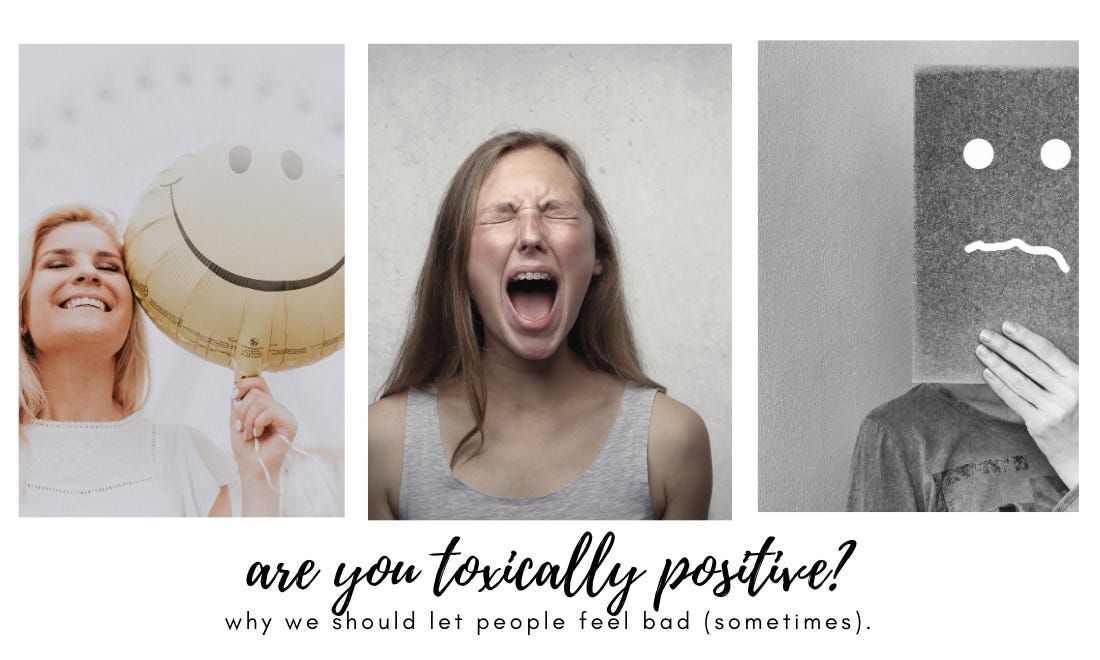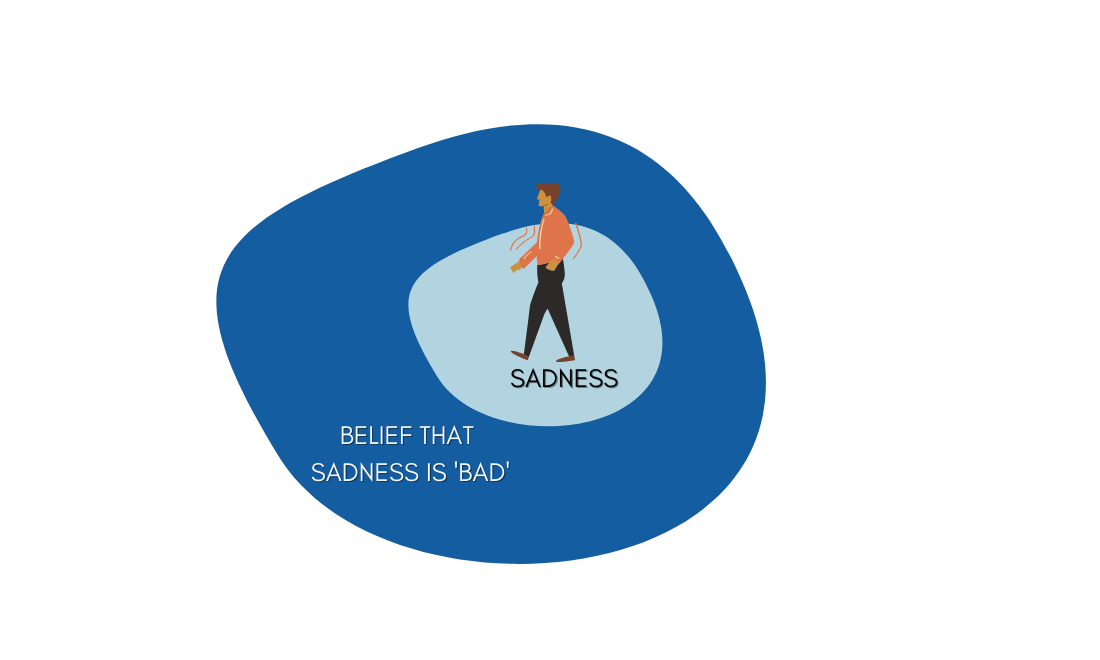At least now you can…. look at the bright side… but you still have…. you’re so much better off …
Silver linings, cheer ups and solutions are common responses to our negative emotions.
All of those responses come from a good place - the other person doesn’t want you to suffer.
But is it helpful?
Is it helpful when we bribe a child with candy to make them stop crying when they’re upset? Is it helpful when we try and talk ourselves out of feeling lonely, sad or angry?
Read on to learn the benefits of allowing ourselves (and our loved ones) to feel a little 💩 sometimes.
Therapy is all about learning to feel bad.
I often work with clients to help them allow for uncomfortable feelings.
Humans were made with a whole spectrum of emotions, some feel great and others don’t. But each emotion we experience has a purpose.
Anger might tells us our boundaries have been crossed. Loneliness may tell us we need to pull closer to our social support networks. Sadness may tell us an internal need wasn’t met. All of these emotions are communicating important messages.
And yet, since childhood, we have been taught we shouldn’t feel those things.
As babies we were told ‘sh sh sh sh’ whenever we cried and offered food to cheer us up.
As adults that pattern continues, if in a different form.
Think of these uncomfortable emotions as ‘puddles’ you have to walk through or jump over. The initial uncomfortable emotion is a little puddle, that is relatively easily or quickly crossed.
But if we believe that the emotion is ‘bad’, that we somehow shouldn’t be feeling it, then that belief creates a second, much bigger puddle - which is much more difficult to cross.
How toxic positivity reinforces that belief.
When your friend is sad about something and your focus is to help them notice the silver linings to cheer them up, your underlying message is ‘you shouldn’t feel sad’.
When a child is angry that they have to stop playing a game they are enjoying and we tell them off for that anger, or even try and distract them with a cookie, our underlying message is ‘you shouldn’t feel anger’.
We’re all uncomfortable with uncomfortable emotions - and especially the uncomfortable emotions of our loved ones. We want them to be happy all the time.
But that’s not realistic for them or us. Each day we will cross several puddles of uncomfortable emotions - we’re humans in an imperfect world.
Let’s not create additional puddles by fearing those uncomfortable emotions.
The next time your friend is sad try saying ‘that sounds shit’ and then sit with them, cuddle them, wait with them until they are ready to move on. It will be sooner than you fear, I promise.
Want to learn more?
For some beautiful resources, check out these links:
A mother’s response to her daughter's sadness
The difference between positive psychology and toxic positivity
SUMMARY:
We were created with a whole spectrum of emotions - comfortable and uncomfortable. All of these emotions have a place and a purpose. Instead of trying to prevent or stop uncomfortable emotions practice accepting them, trying to recognise their purpose, and waiting them out with kindness and love.
Do you want to learn how to respond to uncomfortable emotions with kindness and love? Book a free 15 minute introductory call with me to find out how I can help.
If you liked this message then share it with friends and loved ones. It helps me and I hope it helps them too.
Links and References:
Can positivity be counterproductive when suffering domestic abuse?: A narrative review : UEL Research Repository. (2020). Uel.ac.uk. [online] Available at: https://repository.uel.ac.uk/item/8842y [Accessed 2 Mar. 2021].
Eisenberg, N., Fabes, R.A. and Murphy, B.C. (2021). Parents’ Reactions to Children’s Negative Emotions: Relations to Children’s Social Competence and Comforting Behavior. Child Development, [online] 67(5), pp.2227–2247. Available at: https://srcd.onlinelibrary.wiley.com/doi/abs/10.1111/j.1467-8624.1996.tb01854.x [Accessed 2 Mar. 2021].
Google Books. (2013). Distress Tolerance. [online] Available at: https://books.google.dk/books?hl=en&lr=&id=70zBvWRE1PcC&oi=fnd&pg=PR1&dq=distress+tolerance+mental+health&ots=ybmUxaiEkQ&sig=LacngZcpw6D4ONSDQ0rgW9I6vQI&redir_esc=y#v=onepage&q=distress%20tolerance%20mental%20health&f=false [Accessed 2 Mar. 2021].
Nila, K., Holt, D.V., Ditzen, B. and Aguilar-Raab, C. (2016). Mindfulness-based stress reduction (MBSR) enhances distress tolerance and resilience through changes in mindfulness. Mental Health & Prevention, [online] 4(1), pp.36–41. Available at: https://www.sciencedirect.com/science/article/abs/pii/S2212657015300179 [Accessed 2 Mar. 2021].
Learn more about me at www.efiaskitchen.com
Images from www.canva.com






